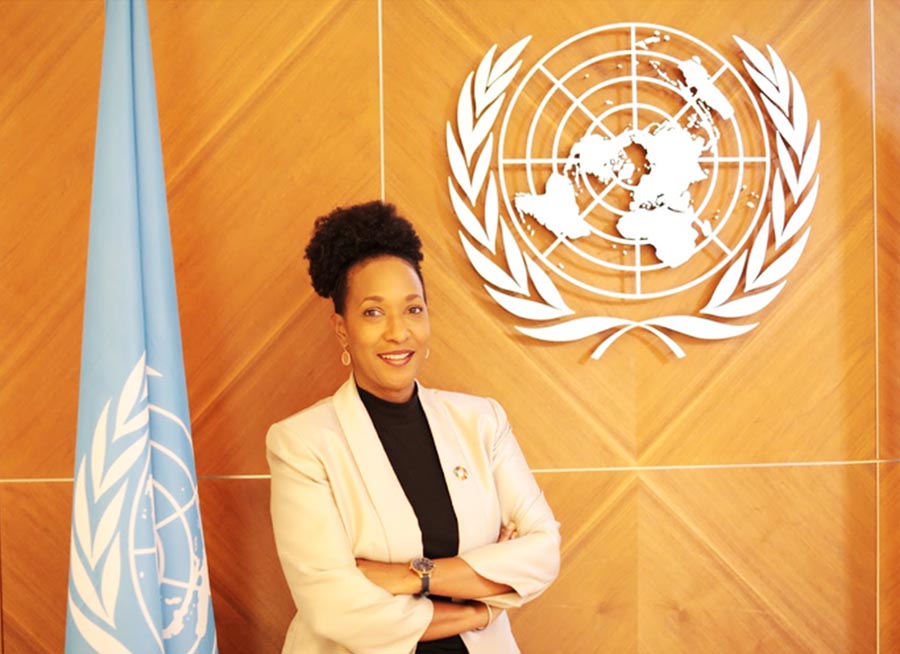Trade is one of the official themes of the currently underway 2023 United Nations Climate Change ‘Summit’ (COP 28) in Dubai to which the Caribbean is currently paying attention. Trade in the Caribbean context is linked to a range of other critical regional developmental issues, one of those being food security, arguably, currently the foremost issue on the region’s agenda. In Dubai, the issue of trade as part of the broader package of issues on its agenda is being addressed against the backdrop of the wider issue of trade and its links to climate change.
In Dubai, the UN small business agency, named the International Trade Centre (ITC) has reportedly been assigned the task of bringing the voices of the international small business community to the trade and climate discussions. Bearing in mind that small businesses comprise around 90% of all business houses and accounts for two thirds of all jobs, globally, the perspectives of the ITC clearly belong at any global forum that seeks to pursue meaningful discourse with the international small business community. Perhaps, more to the point, the Dubai opportunity affords small businesses an enhanced opportunity to share their perspectives on small business policies.
 Here, one of the issues that will be of particular interest to Guyana and to the wider Caribbean Community, is agriculture as a small business pursuit, particularly in the context of the sector’s vulnerability to climate change and the environmental ‘role’ which climate plays as a major source of greenhouse gas emissions. Further, with smallholder farmers providing one-third of the global food supply, (a figure that can reportedly go as high as 80 percent in some countries), their concerns and perspectives are not believed to be adequately reflected in the crafting of critical policies and legislation that impacts them. One of the challenges confronting small businesses, globally, is the realization that they need to play a role in tackling climate change. They need to do so by making what is described as “the low-carbon transition.”
Here, one of the issues that will be of particular interest to Guyana and to the wider Caribbean Community, is agriculture as a small business pursuit, particularly in the context of the sector’s vulnerability to climate change and the environmental ‘role’ which climate plays as a major source of greenhouse gas emissions. Further, with smallholder farmers providing one-third of the global food supply, (a figure that can reportedly go as high as 80 percent in some countries), their concerns and perspectives are not believed to be adequately reflected in the crafting of critical policies and legislation that impacts them. One of the challenges confronting small businesses, globally, is the realization that they need to play a role in tackling climate change. They need to do so by making what is described as “the low-carbon transition.”
The problem that they face in many instances, is that they lack information, skills, technology and financing to undertake those pursuits. Up to this time, a mere 1.7% of climate finance goes to small-scale farmers in developing countries, never mind the fact that those farmers are among the most vulnerable in the world. In circumstances where access to financing is critical to small business growth in underdeveloped countries, ITC Executive Director Pamela Coke-Hamilton is on record as saying that ‘”small businesses in developing countries need two things to make the low-carbon transition – capacity and capital.” She added that some small businesses are “already taking action, by using renewable energy sources, reducing waste, and creating bio-diverse products and services.,” though she added that “more small businesses need to be equipped with the skills and financing to make those changes and to scale their solutions, and we’re here to help.”
Prior to the start of COP 28, the ITC had already signaled its intention to join the World Trade Organization, (WTO), the United Nations Conference on Trade and Development (UNCTAD) and the International Chamber of Commerce (ICC) in providing a forum for the ‘’showcasing’ of “trade-led solutions to accelerate the transition to a low-carbon economy, in a way that does not leave anyone behind.” The Trade House forum was also expected to highlight the role of small businesses, especially women and young people—led ones, “in driving sustainable change.”





